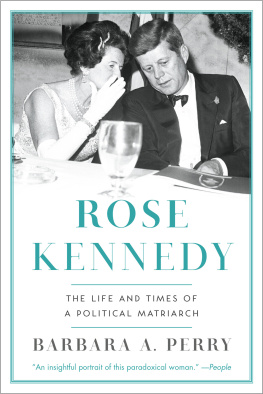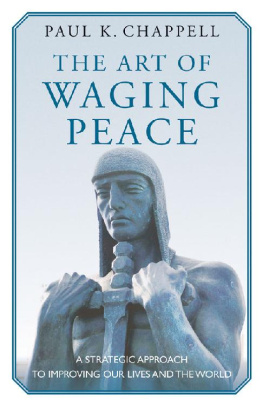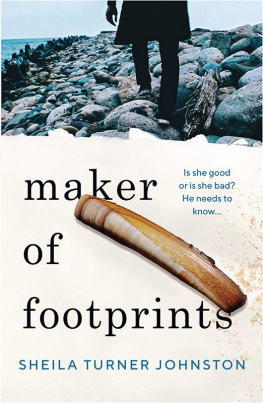WAGING WAR, MAKING PEACE
WAGING WAR, MAKING PEACE
Reparations and Human Rights
Based on a Report from the American Anthropological
Association, Committee for Human Rights,
Reparations Task Force
Edited by
Barbara Rose Johnston
Susan Slyomovics
First published 2009 by Left Coast Press, Inc.
Published 2016 by Routledge
2 Park Square, Milton Park, Abingdon, Oxon OX14 4RN
711 Third Avenue, New York, NY 10017, USA
Routledge is an imprint of the Taylor & Francis Group, an informa business
Copyright 2009 Taylor & Francis
All rights reserved. No part of this book may be reprinted or reproduced or utilised in any form or by any electronic, mechanical, or other means, now known or hereafter invented, including photocopying and recording, or in any information storage or retrieval system, without permission in writing from the publishers.
Notice:
Product or corporate names may be trademarks or registered trademarks, and are used only for identification and explanation without intent to infringe.
Library of Congress Cataloging-in-Publication Data
American Anthropological Association. Reparations Task Force.
Waging war, making peace: reparations and human rights/a report from the Reparations Task Force, the Committee for Human Rights, American Anthropological Association: edited by Barbara Rose Johnston and Susan Slyomovics.
p. cm.
Based on essays first presented during a double session of panels at the annual meeting of the American Anthropological Association in San Jose, California, in 2006.
Includes index.
ISBN 978-1-59874-343-2 (hardcover: alk. paper)
ISBN 978-1-59874-344-9 (pbk.: alk. paper)
1. Reparations for historical injustices. 2. Restorative justice. 3. Human rightsMoral and ethical aspects. I. Johnston, Barbara Rose. II. Slyomovics, Susan. III. Title.
JC578.A485 2009 303.6'9dc22 2008038382
Cover design by Andrew Brozyna
Front Cover illustrations: Images from the January 14, 2004 ceremony to decommission the military base guarding the resettlement village of Pacux on the outskirts of Rabinal, Guatemala. The Pacux model village was built with hydroelectric dam development funds, and was the first of many militarized villages built to control and re-educate the Mayan civilian population. Pacux was the last of the militarized civilian encampments to be decommissioned in Guatemala, some seven years after the Peace Accords were signed. A number of Pacux residents survived massacres in the 1980s and are now key witnesses in Genocide and Crimes Against Humanity cases in the Guatemalan and Spanish Courts. Photos courtesy of Bert Janssens.
Hardback ISBN 978-1-59874-343-2
Paperback ISBN 978-1-59874-344-9
CONTENTS
Susan Slyomovics
Barbara Rose Johnston
Gretchen E. Schafft
James Phillips
Lisa J. Laplante
Susan Slyomovics
Maria-Pia Di Bella
David Vine, Philip Harvey, and S. Wojciech Sokolowski
Liza Grandia
Kathleen Dill
Rebecca Bryant
Dan Rabinowitz
Alison Dundes Renteln
SUSAN SLYOMOVICS
Where there is a right, there is a remedy (ubi ius ibi remedium).
R eparation is a general term for a variety of redress measures that include restitution and compensation as well as rehabilitation, satisfaction, and guarantees of nonrepetition. Although the goals of restitution are to return the victim to the conditions prior to violation, financial compensation attempts to assess harm as a consequence of the violation. In cases of reparation, geopolitical interests and international legal norms all too frequently dictate approaches to such key human rights issues. As an exemplary recent study of the state of redress and remedies, The Handbook of Reparations, edited by Pablo de Grieff (2006) of the New Yorkbased International Center for Transitional Justice, provides important details, documents, and essays that focus on legal analyses and the design and implementation of reparations programs worldwide.
In contrast, anthropology more often than not focuses on individuals and groups rather than states. What insights do anthropology and anthropologists bring to the national, transnational, and international topics of waging war and making peace? With anthropologys long-standing claims of cultural and heritage preservation, and our solidarity with varied cultures and peoples on the ground, how do anthropologists engage with issues of national self-determination, peaceful coexistence, religious and cultural difference, human rights and the conduct of war, including the social and economic demands for redress by everyday actors? If lawyers see reparations as justice, do anthropologists imagine a more expansive, integrated form of reparationswhat Barbara Rose Johnstons introduction to this volume terms our disciplines holistic four-field approach?
Chapters in this volume represent a variety of methodological, thematic, comparative, and theoretical approaches, yet all are informed by anthropology and what anthropologists offer to the study of reparations. Permitting people to speak about what has happened to them and their communities, as these chapters do, is part of a process in which speakers are transformed from victims into rights-bearing humans and citizens. Thus, it is for us as anthropologists to listen both inside and outside the courts, considering reparations as a matter of law, as a social movement, and as an extension of a political project. How do social movements for reparation lead to legally enforceable rights? Inside the law, reparations may be part of a court procedure exemplifying retributive justice, but outside the law, what kind of justice is to be envisioned? The authors seek to explore the paradox and nuances of reparations, since outcomes achieved are not always satisfactory, whether they are historical truth-finding, the politics of recognition, making amends, or cash payments accompanied by the silence of perpetrators, amnesties, or white-washing the past.
Most of these works were first presented to an audience of anthropologists during a double session of panels at the 105th annual meeting of the American Anthropological Association in San Jose, California, in 2006. The idea for a panel on reparations began over dinner a year earlier at the November 2005 annual conference of the AAA in Washington, DC. Barbara Rose Johnston and I were seated together during the evening meal that introduced current members and alumni of the AAAs Committee for Human Rights, which the AAA established in 1995 following the actions and recommendations of a four-year Commission on Human Rights. It seemed to both of us that programs of the annual AAA conference indicated that anthropologists are engaged in human rights reparations work and reporting their work in every section and interest group of the association. Recognizing the cross-disciplinary involvement in social justice struggles, we initiated, through the Committee for Human Rights, the Reparations Task Force with an initial agenda of encouraging discipline-wide discussion of the conceptual, methodological, ethical, and political praxis issues associated with the anthropology of making peace. To begin the discussion, a call for papers was published in the










